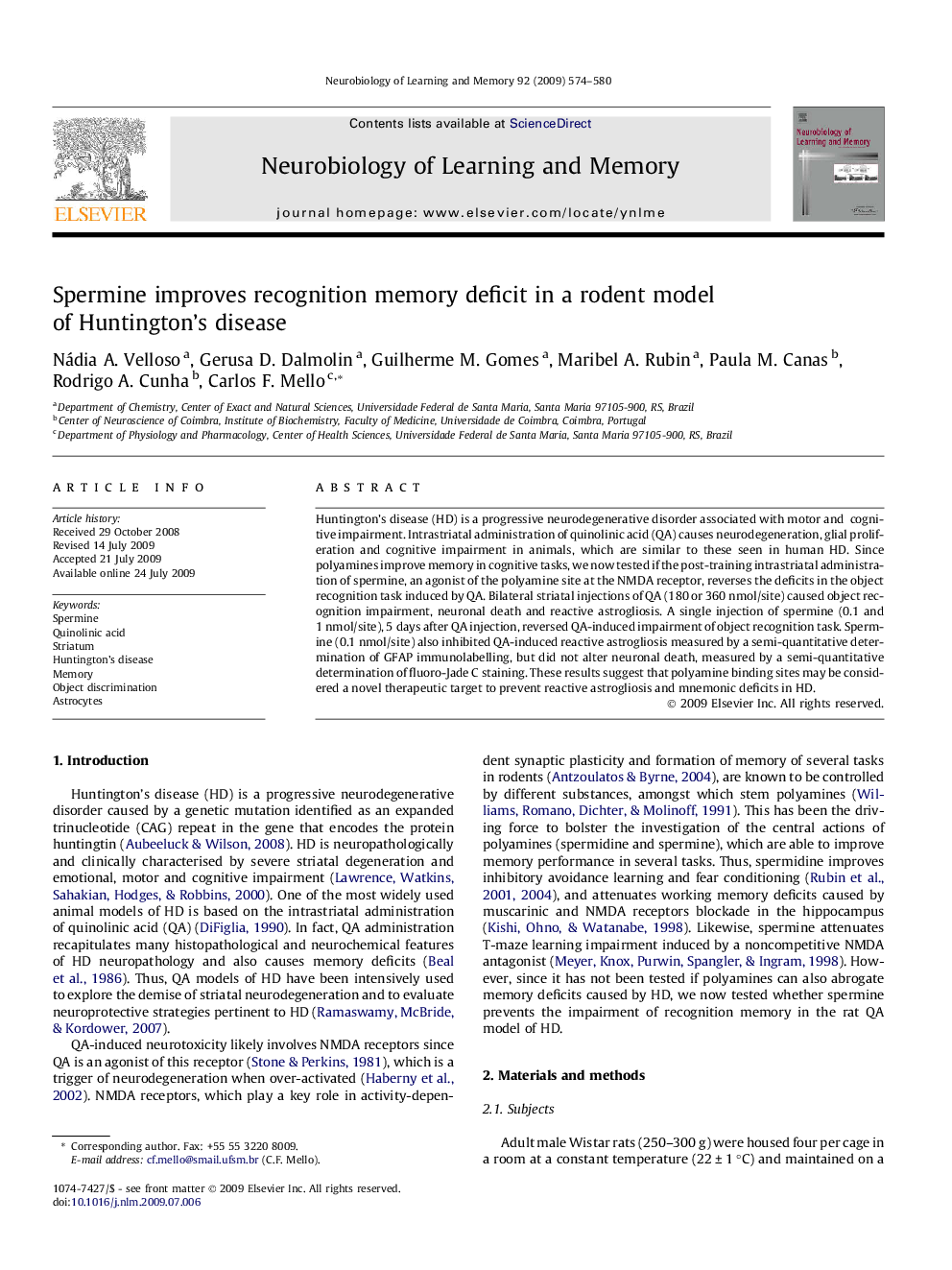| کد مقاله | کد نشریه | سال انتشار | مقاله انگلیسی | نسخه تمام متن |
|---|---|---|---|---|
| 936896 | 1475201 | 2009 | 7 صفحه PDF | دانلود رایگان |

Huntington’s disease (HD) is a progressive neurodegenerative disorder associated with motor and cognitive impairment. Intrastriatal administration of quinolinic acid (QA) causes neurodegeneration, glial proliferation and cognitive impairment in animals, which are similar to these seen in human HD. Since polyamines improve memory in cognitive tasks, we now tested if the post-training intrastriatal administration of spermine, an agonist of the polyamine site at the NMDA receptor, reverses the deficits in the object recognition task induced by QA. Bilateral striatal injections of QA (180 or 360 nmol/site) caused object recognition impairment, neuronal death and reactive astrogliosis. A single injection of spermine (0.1 and 1 nmol/site), 5 days after QA injection, reversed QA-induced impairment of object recognition task. Spermine (0.1 nmol/site) also inhibited QA-induced reactive astrogliosis measured by a semi-quantitative determination of GFAP immunolabelling, but did not alter neuronal death, measured by a semi-quantitative determination of fluoro-Jade C staining. These results suggest that polyamine binding sites may be considered a novel therapeutic target to prevent reactive astrogliosis and mnemonic deficits in HD.
Journal: Neurobiology of Learning and Memory - Volume 92, Issue 4, November 2009, Pages 574–580